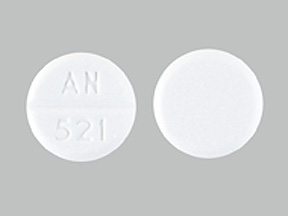
Promethazine Coupons & Savings Card – Discount Prices from $8.46
Generic for: Phenergan, Promethegan
My prescription
Edit
25MG, Promethazine (30 Tablets)
Select pharmacy

CVS
$19.54
COUPON PRICE
Albertsons
$8.46
COUPON PRICE
Walgreens
$10.34
COUPON PRICE
Walmart
$16.23
COUPON PRICEPromethazine savings card
Show this card to your pharmacist
Albertsons
$8.46
BIN
ID
PCN
GRP
011867
LH675123AE
HT
LABH001
Powered by
More prescriptions for skin allergy
More prescriptions for skin allergy
Price history for Promethegan (brand) & Promethazine (generic)
30 Tablets, 25MG
Average retail price for Promethegan
Average retail price for Promethazine
Average SaveHealth price for Promethazine
Our price history data is based on aggregated prescription data collected from participating pharmacies in America. Our prescription data updates daily to reflect the latest price changes. If you notice a missing data point, it means there wasn't sufficient data available to generate a monetary value for that date.
We analyzed Promethazine prices for (25MG, 30 Tablets) over the last 12 months. The average retail price was $31.62, while the average price using the SaveHealth discount card was $12.08. That's a savings of approximately 61.80% when using our Promethazine coupon.
Compared to the generic version, Promethegan had an average price of $100.66 over the same time period. With the SaveHealth savings card, Promethazine is 88.00% cheaper on average than Promethegan.
*Retail prices are based on pharmacy claims data, and may not be accurate when we don't have enough claims.
Promethazine dosage forms
Dosage Quantity Price from Per unit 12.5MG 1 Tablet $9.04 $9.04 12.5MG 2 Tablets $9.09 $4.54 12.5MG 10 Tablets $9.44 $0.94 12.5MG 12 Tablets $9.53 $0.79 12.5MG 20 Tablets $9.88 $0.49 12.5MG 21 Tablets $9.92 $0.47 12.5MG 30 Tablets $10.31 $0.34 12.5MG 40 Tablets $10.75 $0.27 12.5MG 60 Tablets $11.63 $0.19 12.5MG 100 Tablets $13.38 $0.13
| Dosage | Quantity | Price from | Per unit |
|---|---|---|---|
| 12.5MG | 1 Tablet | $9.04 | $9.04 |
| 12.5MG | 2 Tablets | $9.09 | $4.54 |
| 12.5MG | 10 Tablets | $9.44 | $0.94 |
| 12.5MG | 12 Tablets | $9.53 | $0.79 |
| 12.5MG | 20 Tablets | $9.88 | $0.49 |
| 12.5MG | 21 Tablets | $9.92 | $0.47 |
| 12.5MG | 30 Tablets | $10.31 | $0.34 |
| 12.5MG | 40 Tablets | $10.75 | $0.27 |
| 12.5MG | 60 Tablets | $11.63 | $0.19 |
| 12.5MG | 100 Tablets | $13.38 | $0.13 |
| 25MG | 30 Tablets | $10.34 | $0.34 |
| 25MG | 1 Tablet | $9.04 | $9.04 |
| 25MG | 2 Tablets | $9.09 | $4.54 |
| 25MG | 4 Tablets | $9.18 | $2.29 |
| 25MG | 5 Tablets | $9.22 | $1.84 |
| 25MG | 6 Tablets | $9.27 | $1.54 |
| 25MG | 10 Tablets | $9.45 | $0.94 |
| 25MG | 12 Tablets | $9.54 | $0.80 |
| 25MG | 14 Tablets | $9.63 | $0.69 |
| 25MG | 15 Tablets | $9.67 | $0.65 |
| 25MG | 20 Tablets | $9.89 | $0.49 |
| 25MG | 25 Tablets | $10.12 | $0.41 |
| 25MG | 28 Tablets | $10.25 | $0.37 |
| 25MG | 33 Tablets | $10.48 | $0.32 |
| 25MG | 45 Tablets | $11.01 | $0.24 |
| 25MG | 56 Tablets | $11.50 | $0.20 |
| 25MG | 60 Tablets | $11.68 | $0.20 |
| 25MG | 90 Tablets | $13.02 | $0.14 |
| 25MG | 100 Tablets | $13.47 | $0.14 |
| 25MG | 120 Tablets | $14.36 | $0.12 |
| 25MG | 500 Tablets | $39.18 | $0.08 |
| 25MG | 1000 Tablets | $62.70 | $0.06 |
| 50MG | 4 Tablets | $2.90 | $0.72 |
| 50MG | 30 Tablets | $5.47 | $0.18 |
| 50MG | 100 Tablets | $18.91 | $0.19 |
